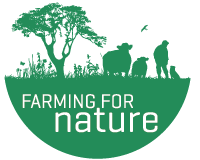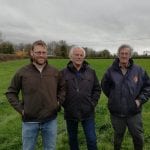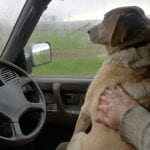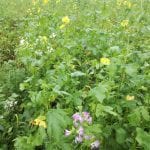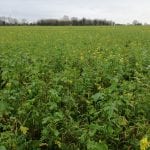Mark Armitage
Mark has been a pioneer of Conservation Agriculture in Ireland. Incorporating it into his mixed farming system since returning to the family farm. Mark runs an Aberdeen Angus /Stabiliser herd as well as growing cereal crops and herbal leys.
His journey into Conservation Agriculture began when he was investigating the underlying issues that were affecting animal health on his farm. He came upon the visionary work of William A Albrecht. Albrecht found a link between soil fertility, food quality and animal & human health. this led mark to use Albrecht soil samples to understand how the nutrient composition of his soil was affecting the health of his animals. Albrecht believed a balanced soil will provide all the nutrients a plant needs and that by correcting a soil to the correct levels for each nutrient it leads to well balanced nutritious plants and animals
One problem was grass tetany, or a lack of magnesium in the animal. This was caused by having a higher level of potassium in the soil than magnesium. The ideal ratio of Magnesium to Potassium is 4:1, by raising the magnesium levels on his farm using Kieserite (Magnesium Sulphate or better known as Epsom salts) he has eliminated grass tetany in his herd and the inclusion of Boron in this mix has also improved bone structure and development in his animals which had previously suffered from brittle bones.
Mark also had to foresight to see that No Till drilling was the future for sustainable crop production in Ireland and imported the first John Deere 750A no till drill in the country from Denmark. After a complete refurbishment on farm he now drills cereal crops and grass leys with this drill. This drill has been used to drill crops for aspiring Conservation Agriculture farmers in other counties such as Cork, Carlow, Kildare and Meath so that they can see how no till crops will work on their farms before making a leap of faith.
Mark has also implemented some herbal leys into his grazing rotation. In mixes, grasses provide carbohydrates and clovers contribute protein. However, adding forage herbs such as chicory, ribgrass and burnet improves the quantities of vital minerals in the forage which helps increase daily live weight gains and milk production. Just as vital is their ability to build soil fertility, withstand drought and promote biodiversity across whole fields.
Herbal Leys have traditionally been used to build soil fertility and structure in an arable rotation, acting as a minimal input, four year break crop, but they bring significant benefits not only to the soil health, but also to the health and diet of livestock and the wider environment.
In 2018 Mark welcomed American Gary Zimmer to the farm. Known as the “father” of biological agriculture, and the link between soil health and animal health and conversely human health. Zimmer is an internationally known author, speaker, and consultant. He owns Otter Creek Organic Farm, a family-operated, award-winning 1,000 acre farm near Lone Rock, Wisconsin.
Nominator: Michael Costello, Secretary, BASE Ireland
